
Nature
18:14, 30-Oct-2018
An expedition reveals Francois' leaf monkey to the world
Updated
17:36, 02-Nov-2018
By Zhao Ying
00:51
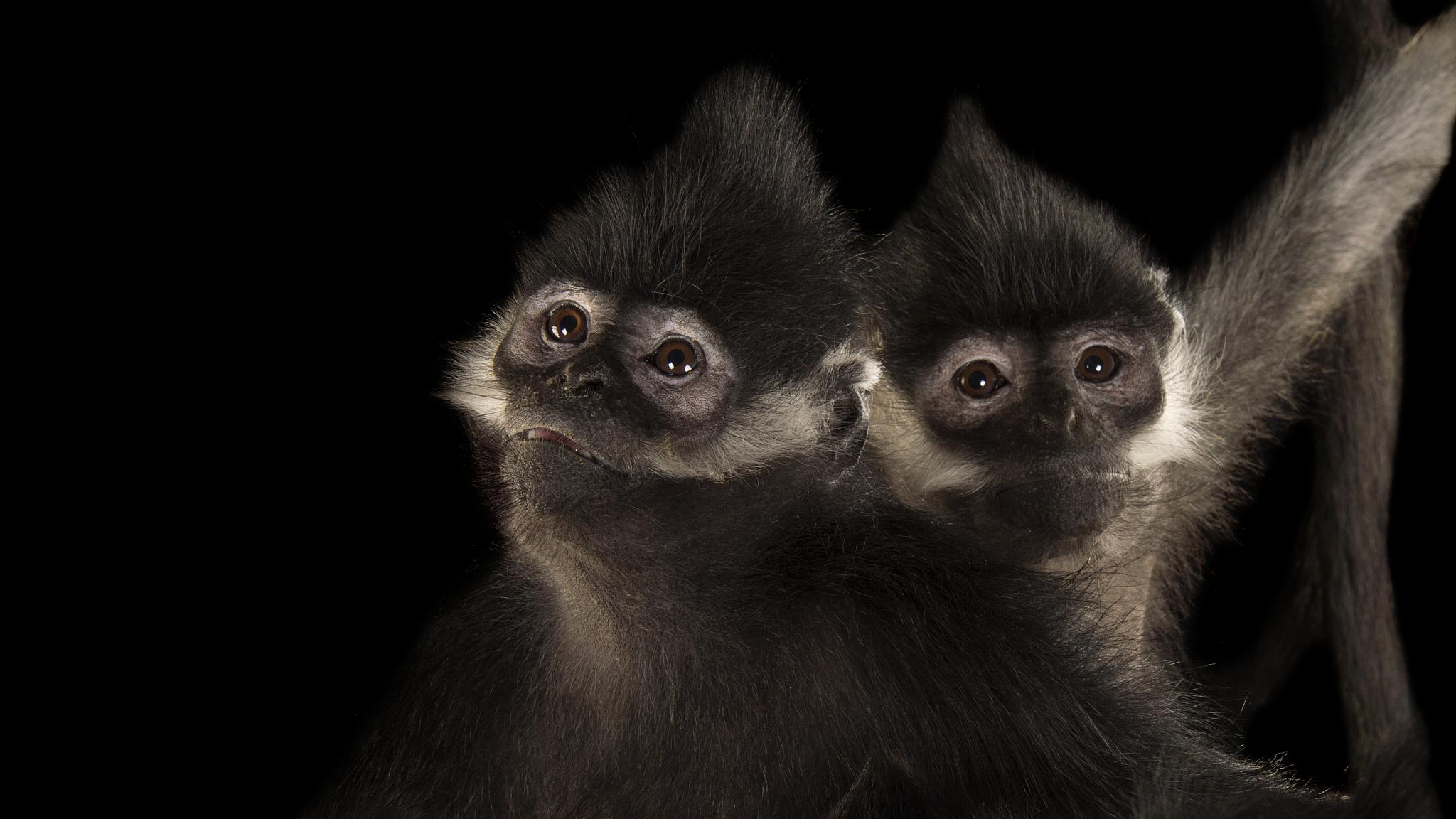
A scientific expedition started on Monday at the Mayanghe Nature Reserve in southwest China's Guizhou Province, which is home to the Francois' leaf monkey, one of China's most endangered wild animals.
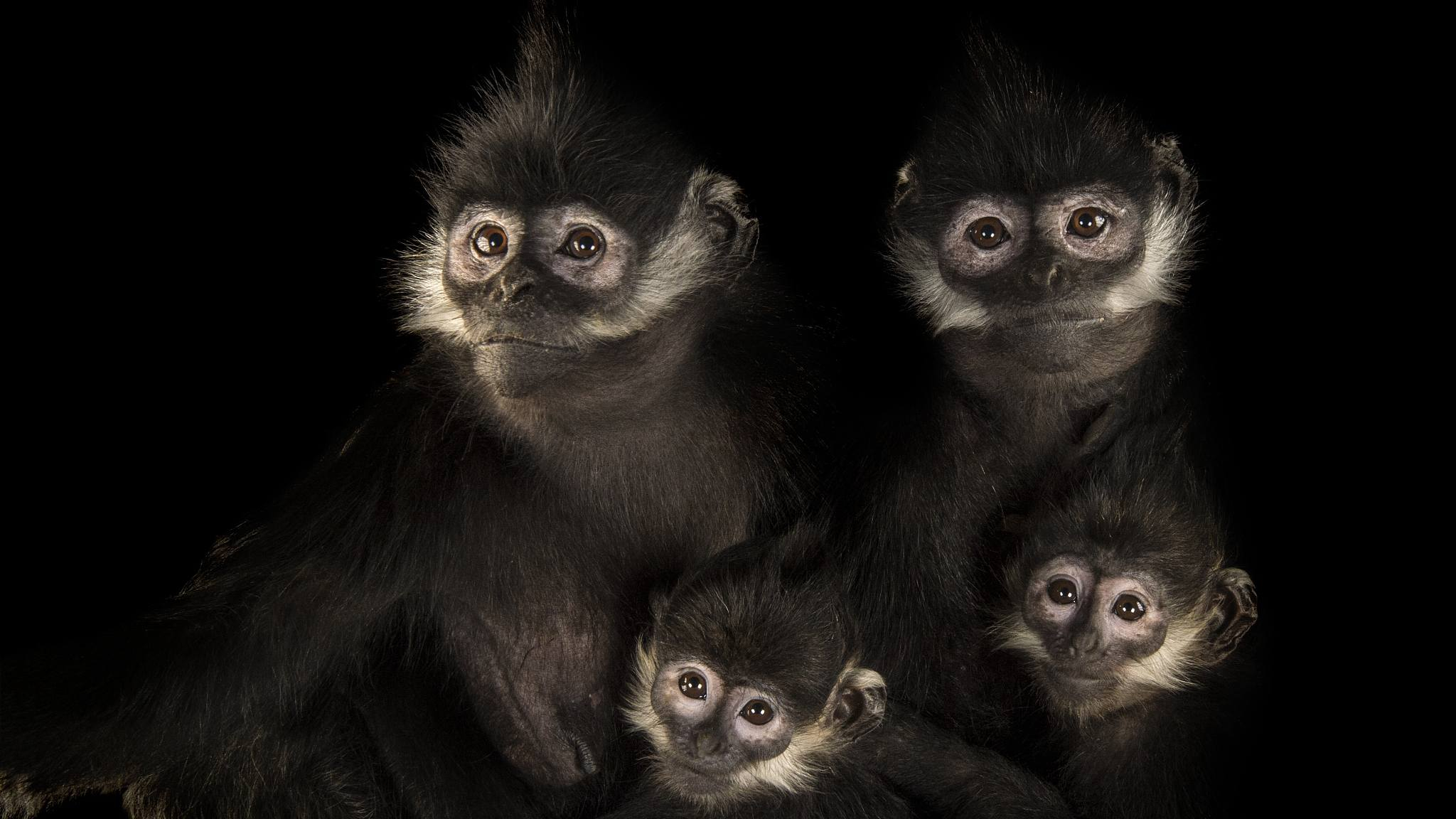
A studio portrait of Francois langurs, Trachypithecus francoisi. /VCG Photo
A studio portrait of Francois langurs, Trachypithecus francoisi. /VCG Photo
This black fluffy monkey with a spiky quiff haircut is a type of leaf monkey as it eats large amounts of leaves. It was named after Auguste Francois, who was a French diplomat and avid photographer in southern China from 1896 to 1905. He was the first person to introduce the Francois' leaf monkey to the West.
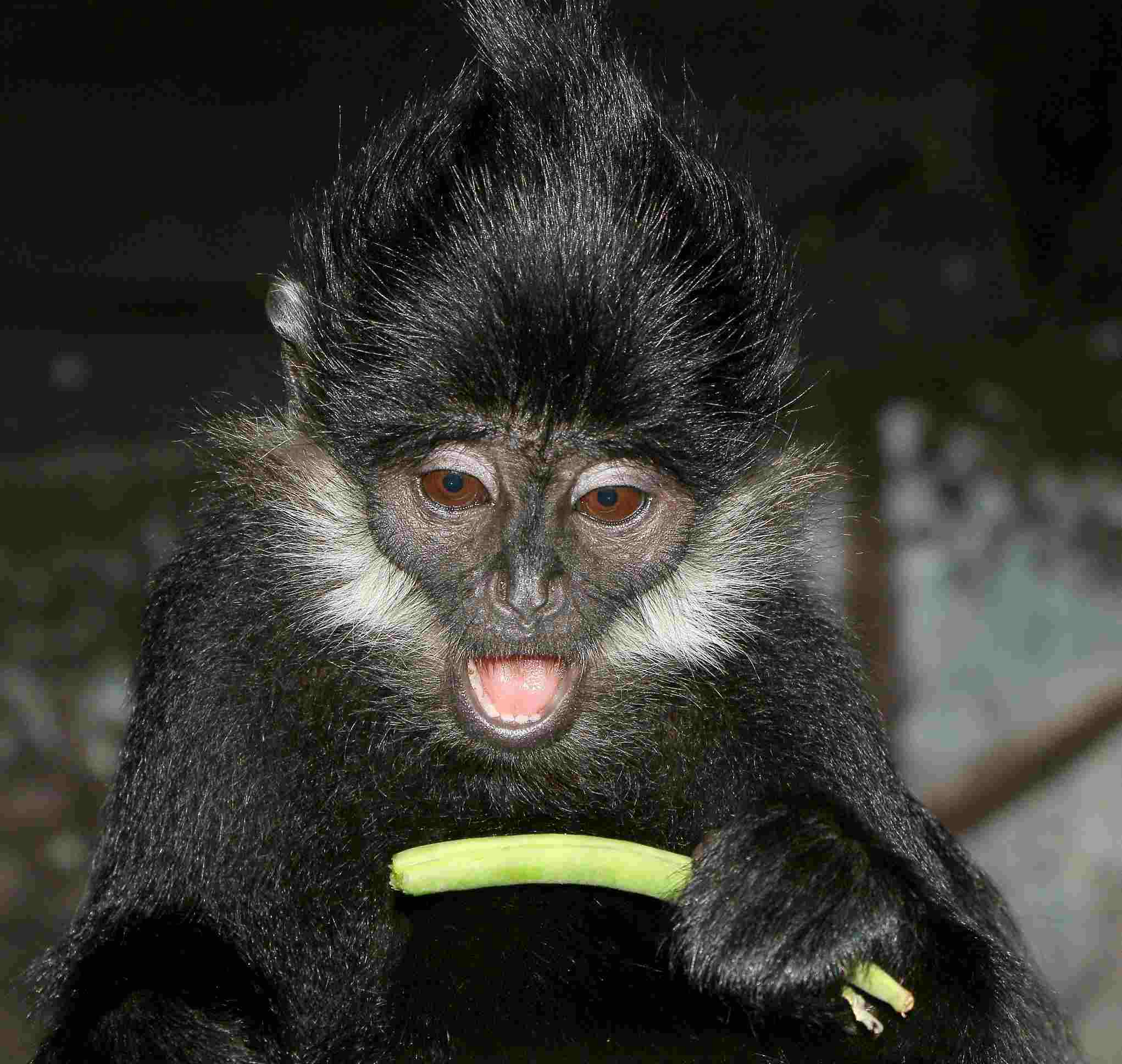
François' langur eating. /VCG Photo
François' langur eating. /VCG Photo
Francois' leaf monkey, also named Francois' langur, was listed as an endangered species by IUCN in 2008. Poaching and habitat loss are the main threats to their existence. Now, they can be found in China's Guizhou, Guangxi, Chongqing and the northern mountain areas of Vietnam.
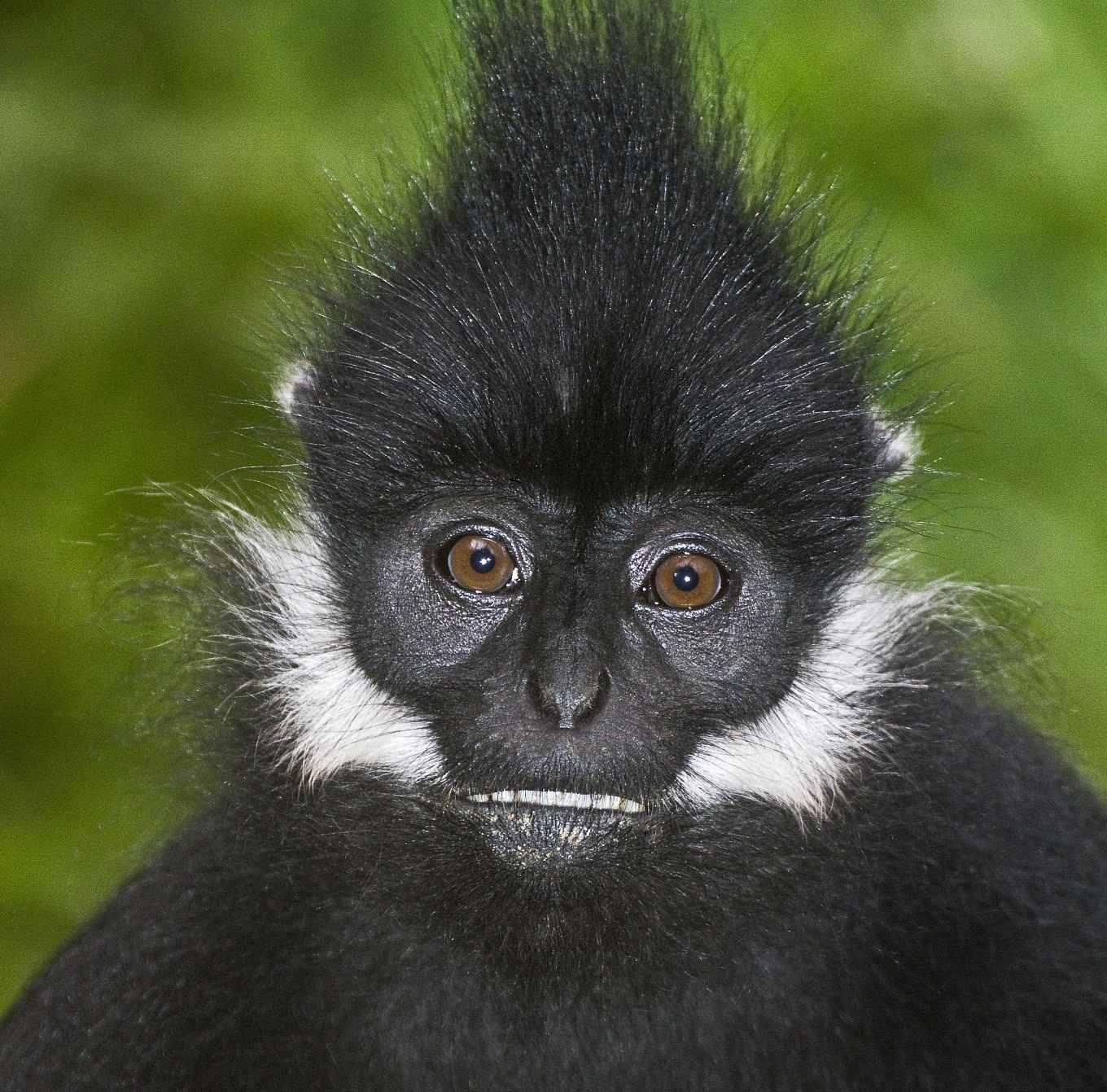
Francois' langur (Trachypithecus francoisi) captive, from Vietnam, Laos and southern China. /VCG Photo
Francois' langur (Trachypithecus francoisi) captive, from Vietnam, Laos and southern China. /VCG Photo
Due to the huge protection provided in the reserve, the population of Francois' leaf monkey here not only ranks first in China but also numbers the most in the world. According to Yang Yeqin, a professor in Francois' langurs research, each group in the reserve inhabits an area as large as three to five square kilometers.
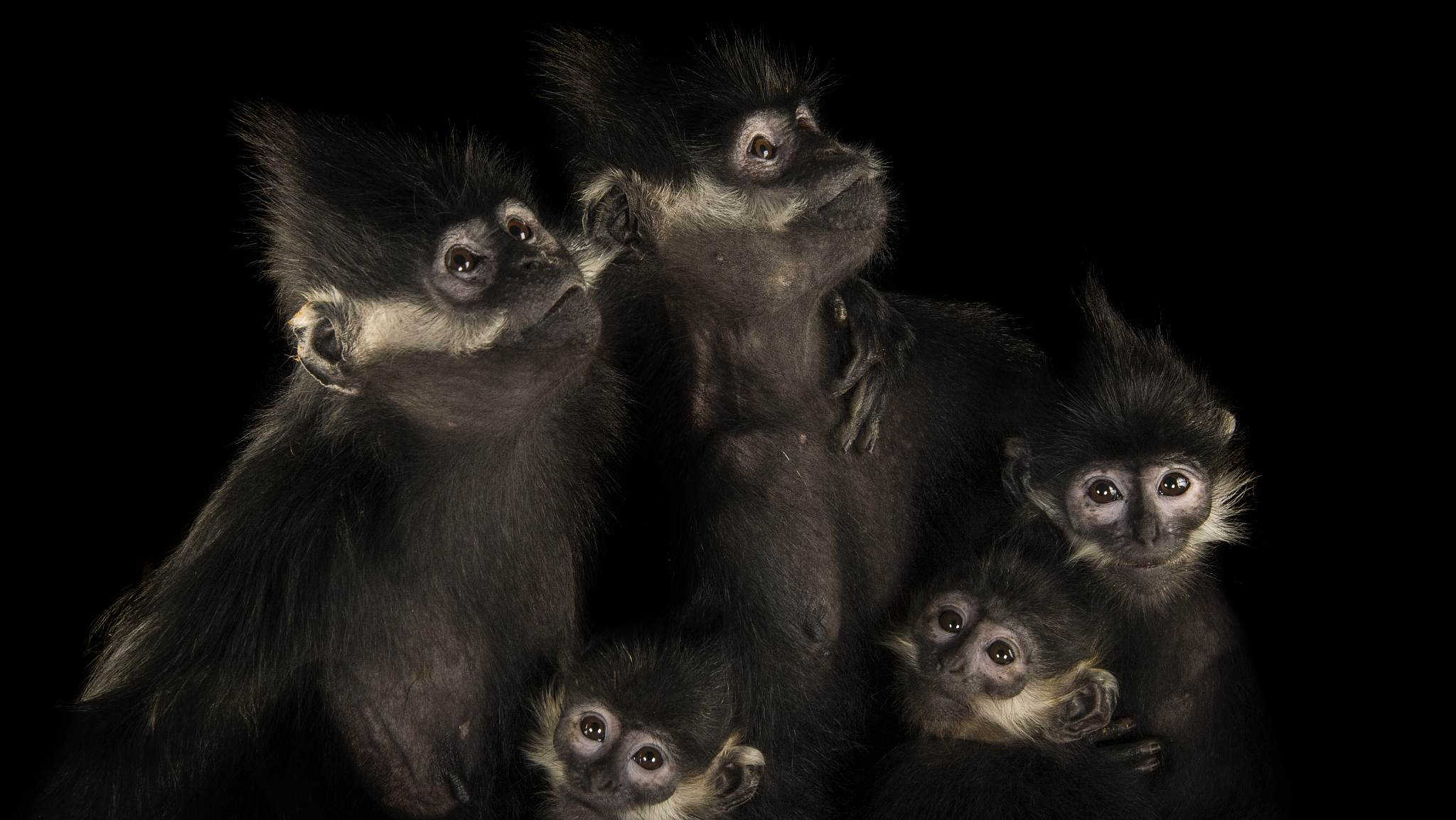
Endangered Francois' langurs, Trachypithecus francoisi. /VCG Photo
Endangered Francois' langurs, Trachypithecus francoisi. /VCG Photo
Sponsored jointly by the UNESCO, the International Union for Conservation of Nature (IUCN), and the China Wildlife Conservation Association (CWCA), this scientific expedition aims at improving the basic data of the natural reserve as well as introducing eco-products and tourism resources to the outside world.

SITEMAP
Copyright © 2018 CGTN. Beijing ICP prepared NO.16065310-3
Copyright © 2018 CGTN. Beijing ICP prepared NO.16065310-3